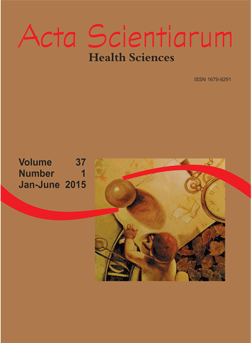<b>Increase in perceived stress is correlated to lower heart rate variability in healthy young subjects
Abstract
Emotional stress is a risk factor for cardiovascular disease. Decreased heart rate variability (HRV) is associated to increased mortality rates in certain heart diseases. Current study assessed the co-relation between perceived stress and HRV parameters. The correlation between psychological stress, measured by the perceived stress scale (PSS-14), and HRV parameters obtained during 5 min. at rest was evaluated. Data from 35 healthy young volunteers demonstrated a significant correlation between PSS-14 scores and Low Frequency-LF (ms2) by frequency domain HRV analysis. Other variables such as High Frequency and Standard Deviation of R-R intervals had also negative coefficients but did not have any significant correlation with PSS-14. No correlation between PSS-14 and sympathovagal balance parameters was found. Data interpretation demonstrated that increase in perceived stress was correlated to decrease in heart rate variability, which may point out an important mechanism in cardiovascular pathophysiology that should be further investigated.
Downloads
DECLARATION OF ORIGINALITY AND COPYRIGHTS
I Declare that current article is original and has not been submitted for publication, in part or in whole, to any other national or international journal.
The copyrights belong exclusively to the authors. Published content is licensed under Creative Commons Attribution 4.0 (CC BY 4.0) guidelines, which allows sharing (copy and distribution of the material in any medium or format) and adaptation (remix, transform, and build upon the material) for any purpose, even commercially, under the terms of attribution.
Read this link for further information on how to use CC BY 4.0 properly.























5.png)







